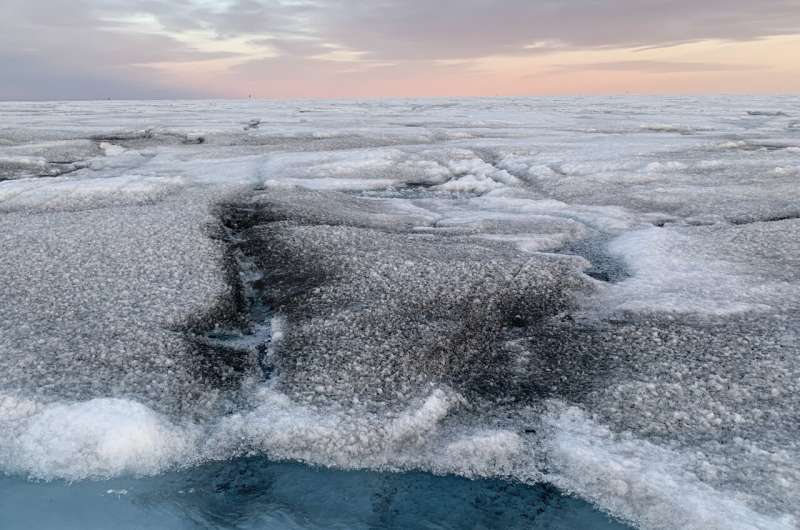Giant viruses discovered in Greenland could slow ice melt

Part of the Greenland Ice sheet with blackened ice caused by algae. Credit: Shunan Feng
June 8, 2024
Danish scientists have discovered giant viruses on the surface ice in Greenland.
These organisms are giant in relative terms – around 2.5 micrometres compared to 0.02-0.2 microns in typical viruses, and with genomes around 10 times longer. While ‘giant’ they’re still impossible to see without a microscope.
Viruses are long known as inhabitants of oceans, under Arctic permafrost and in larger organisms, but these were found beside mats of algae covering the ice sheets and were detected when algal samples were sequenced. This exposed lines of genetic code similar to other known viruses.
But the true nature of Greenland’s giant viruses isn’t known.
Laura Perini, an environmental microbiologist from Aarhus University in Denmark, thinks they may inject themselves into other organisms and effectively become a natural control for the spread of snow algae, when Greenland’s ice thaws in springtime.
“We don’t know a lot about the viruses, but I think they could be useful as a way of alleviating ice melting caused by algal blooms,” Perini says.
. . .

The algae blackens the ice. When that happens the ice reflects less sunlight and melts faster. Several areas in Greenland are covered with black algae. Credit: Laura Perini
More:
https://cosmosmagazine.com/science/biology/giant-viruses-discovered-in-greenland-could-slow-ice-melt/

